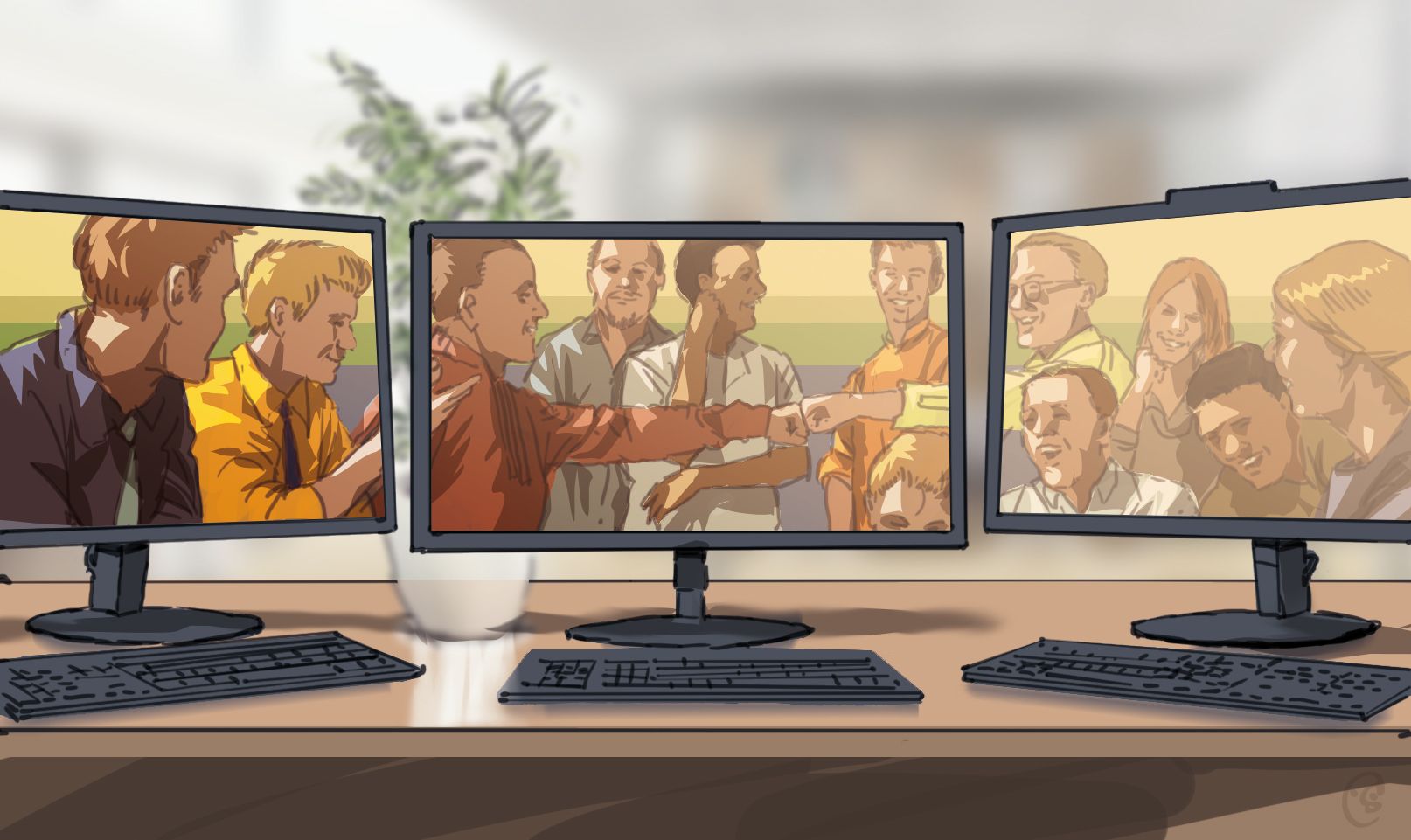There are many good reasons for virtual teams: They work fast, are agile, and they combine people with diverse backgrounds and from various places. What they lacked for very long is a special ingredient any stellar performance needs, they lacked a sense of «We». But times change!
The «We» factor
Have you ever worked in a group of people that managed to establish a special spirit? A sense that everyone was acting in concert and working towards a common goal? That all members of the team were on the same page? Have you ever worked in a genuinely great team atmosphere? If you have, you experienced what I call the sense of «We». It is what often makes the small difference between very good and outstanding teams, between succeeding and a great success. I had the immense privilege to be part of such teams, in some case to lead them. The teams of Weltklasse Zürich and of the 2014 European Athletics Championships had the «We» factor, and so did the Alinghi team. But so far, I found it very difficult to develop the «We» in a virtual team.
Trust a necessary foundation
The sense of «We» is based on trust, one of the most powerful human emotions. If people trust one another, they are more likely to consider other opinions, to accept various perspectives, and to subordinate themselves to a common goal. Trust is the necessary foundation for the sense of «We» and for the success of a team. But how can we create trust?
Focus on strengths
Always begin by recognising your own self. The process may be difficult: Much of our thinking and many of our actions are happening subconsciously and are therefore impalpable. The second step involves engaging with fellow team members. The best way to go about this is by focusing on positive personality traits first, which means looking at strengths only during both step one and two. The road to success as a team always leads via individual and common strengths and never via discussing weaknesses. The latter will almost always create negative reactions and resistance.
Experiencing and cultivating trust
What trust also requires is a testing field, in which people can study and assess authentic behaviour. This involves subconscious processes, such as physical perceptions, a handshake, perhaps, or a hug in appreciation. And this is exactly the kind of behaviour that is so difficult to mimic in the virtual world. Platforms like Teams or Zoom are in my view strictly focusing on sharing knowledge and professional experience. They are being used in a conscious and rational attitude and way.
Social presence is key
Yet, times change! And so do the technical limitations of online video platforms. I would first not have thought it possible, but when I discovered the platform SpatialChat last year, I really felt «social presence» online, a sense of proximity and of bonding with others. In consequence, we immediately started to develop a product on this platform called Mission Team Digital Teambuilding. It really works! In my first podcast on Team Building and Performance, my interview partner Almas Abdulkhairov, founder and CEO of SpatialChat explained why: «Our brains are designed to see us as a group on a common background. Our platform is designed to trick our minds into feeling close and present with each other.» By creating social presence SpatialChat started a new area of virtual team building, which allowed us to design a team building process that focuses on relationships aspects and allows teams to lay the ground for a sense of «We» quite effortlessly in less than a half day.
